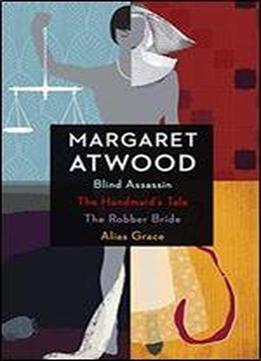

The voices are those of an unidentified young woman from a wealthy family and her lover, a hack writer and socialist agitator on the run from the law the lurid fantasy they concoct between bouts of lovemaking constitutes a novel-within-a-novel.


When her narration gives way to conversations between two people collaborating on a science fiction novel, we assume that we are reading the genesis of Laura's tale. Octogenarian narrator Iris Chase Griffen is moribund from a heart ailment as she reflects on the events following the suicide in 1945 of her fey, unworldly 25-year-old sister, Laura, and of the posthumous publication of Laura's novel, called ""The Blind Assassin."" Iris's voiceDacerbic, irreverent, witty and cynicalDis mesmerizingly immediate. Justly praised for her ability to suggest the complexity of individual lives against the backdrop of Canadian history, Atwood here plays out a spellbinding family saga intimately affected by WWI, the Depression and Communist witch-hunts, but the final tragedy is equally the result of human frailty, greed and passion. Family secrets, sibling rivalry, political chicanery and social unrest, promises and betrayals, ""loss and regret and memory and yearning"" are the themes of Atwood's brilliant new novel, whose subtitle might read: The Fall of the House of Chase.


 0 kommentar(er)
0 kommentar(er)
